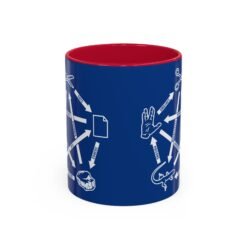Gaming, Gaming History, Unkown History
How Hackers Won a Ferrari Playing ‘OutRun’: The Arcade Game Legend and High-Score Scandals
The Legacy of OutRun: An Arcade Classic
‘OutRun’ remains a landmark title in the realm of arcade gaming, introduced by Sega in the mid-1980s. The game revolutionized the arcade experience with its groundbreaking graphics, which showcased pseudo-3D visuals that captivated players and set a new standard for the industry. The vibrant colors and innovative use of scaling techniques created an engaging visual environment that drew gamers into its world, making every high-speed drive feel exhilarating and immersive. Additionally, ‘OutRun’s’ emphasis on an expansive selection of environments and alternate routes, combined with its concise yet impactful gameplay, positioned it as a trailblazer in the racing genre.
Coupled with pioneering graphics, the game’s unforgettable soundtrack, composed by Hiroshi Kawaguchi, enhanced the overall experience, allowing players to choose from a selection of music while racing. The memorable tunes achieved popularity beyond the arcades, influencing gaming soundtracks for decades. This sonic quality contributed to ‘OutRun’s’ standing as a cultural icon and fostered a sense of nostalgia that resonates with players even today.
In sum, ‘OutRun’ has left an indelible mark on gaming culture, pioneering new technology, influencing sound design, and reshaping competitive gaming. Its legacy continues to inspire game developers and players alike, ensuring that it remains a celebrated classic in the history of arcade gaming.
The Story Behind the High-Score Controversy
The controversy surrounding the high score claim in the classic arcade game ‘OutRun’ captivated both the gaming community and the general public. This episode began when a group of hackers, motivated by the allure of fame and the grand prize of a Ferrari, decided to exploit the game’s mechanics. Their methods involved sophisticated hacks that allowed them to manipulate the arcade system, altering the game’s internal scoring mechanisms. Utilizing external devices and software, they achieved an unprecedented score that surpassed the existing records, instantly generating buzz and intrigue.
These hackers were not just motivated by the tangible reward of a luxury sports car but were also driven by the thrill of subverting the traditional notions of competition. For many in the gaming community, ‘OutRun’ represented a benchmark of skill and timing, a title that required dedication to master. By circumventing these requirements, the hackers raised ethical concerns regarding integrity in competitive gaming. Their actions sparked heated debates about fairness, with some players supporting their ingenuity while others condemned their tactics as deceptive.
The initial reaction to the high score was one of awe, followed by skepticism as fellow gamers and experts began to investigate the legitimacy of the claim. Some accusations pointed towards the lack of stringent verification processes within high-score tracking organizations, prompting calls for reform. As discussions unfolded publicly, the gaming culture began to reflect on the implications of such unethical practices. It became evident that the pursuit of high scores could lead individuals down a morally ambiguous path, drawing a line between personal achievement and the means by which it is obtained.
The Ferraris and the Fallout: Implications for the Gaming Community
The high-score scandal surrounding the arcade game ‘OutRun’ not only brought to light the fragility of competitive integrity but also had significant repercussions for the reputation of both the game and the arcade industry as a whole. When hackers successfully manipulated scores to win extravagant prizes, such as a Ferrari, the incident raised serious questions about validation processes in gaming competitions. This fallout prompted a shift in how both players and developers approached competitive play.
In the wake of the scandal, there was an immediate call for stricter regulations within the arcade gaming community. Arcade operators and gaming companies recognized the need to implement more rigorous score verification systems. Such measures included employing referees to monitor competitions and utilizing software to track scores in real-time, thereby minimizing opportunities for cheating. The goal was to foster an environment grounded in fair play, wherein genuine talent was rewarded rather than those employing dishonest methods.
The incident also created a broader dialogue regarding the ethical responsibilities of game developers. Many began to focus on the importance of creating secure environments that could prevent fraudulent activities. This included introducing measures such as encrypted data transmission and advanced player verification techniques. Developers learned that the integrity of games significantly influences player trust and participation, which are crucial for sustaining a vibrant gaming community.
Furthermore, the repercussions of the ‘OutRun’ scandal have reverberated across competitive gaming at large. The lessons learned have extended beyond arcade games, informing best practices in online gaming environments. Awareness surrounding these issues has led to widespread acknowledgment of the importance of fostering fair competition, paving the way for a more equitable gaming landscape. Ultimately, the high-score scandal served as a pivotal learning moment for all stakeholders in the gaming community, advocating for continuous improvement in standards and practices.
Lessons Learned: The Future of High Scores and Arcade Gaming
The scandal surrounding the high scores achieved in ‘OutRun’ provides significant insights into the future of competitive arcade gaming. As technology has evolved, so too has the landscape of gaming, particularly with regard to the integrity of competition. The rise of online gaming platforms has introduced mechanisms that make cheating more difficult. Enhanced security protocols, such as biometric verification and sophisticated anti-cheat algorithms, are becoming prevalent, significantly raising the stakes for maintaining the sanctity of high scores.
Moreover, legitimate competitive platforms have emerged, allowing gamers to showcase their talents in a structured environment. These platforms not only foster fair competition but also create a community where players can engage without the fear of dishonesty undermining their achievements. Such environments encourage a spirit of integrity, elevating the gaming experience by promoting ethical behavior among players. It is increasingly essential for gamers to adhere to standards that prioritize fairness and sportsmanship, setting a precedent that will shape the future of gaming culture.
In envisioning the future of arcade gaming, one must acknowledge the potential for technological advancements to both challenge and enhance the competitive scene. Emerging technologies, such as virtual and augmented reality, are likely to shape new gaming experiences that can bring fresh excitement while maintaining fairness. Additionally, as the industry continues to evolve, enhancing engagement with players by focusing on community-building will be crucial, ensuring their voices contribute to the ongoing development of gaming ethics.
Ultimately, while the challenges posed by those seeking to cheat in high-score competitions will persist, the commitment to fostering a competitive environment grounded in integrity and sportsmanship will pave the way for a brighter future for arcade gaming. As players and developers continue to navigate these challenges, the lessons learned from the ‘OutRun’ scandal serve as a reminder of the balance that must be maintained between competition and integrity.
Kid's T-Shirts
Dystopian
Nerdy and Gaming
Business and Finance
Business and Finance
₿🔥 Bitcoin Logo Unisex T-Shirt – Crypto Style, Classic Comfort

















